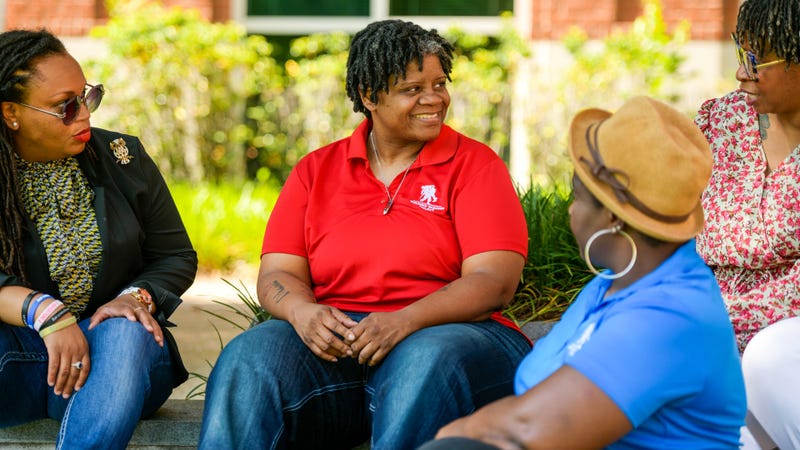
The National Institute of Mental Health estimates that more than 57 million Americans – more than one in five adults – live with mental health issues including depression, post-traumatic stress disorder (PTSD) and suicidality. Most, unfortunately, do not seek help or receive the necessary support they need – which in turn could further increase their isolation and risk. At the heart of this life-threatening public health crisis is stigma and silence.
It is for this reason that military veterans like Samantha Hargrove may be part of the solution. Hargrove has made it her mission to share her experiences with mental health challenges to help others like her. And she is just one of a growing number of military veterans whose stories are raising awareness among the public – positioning herself and her fellow veterans to lead the charge in breaking this silence.
“It’s important for us to share our stories,” says the Air Force veteran. “It helps another warrior understand ‘it’s not just me,’ or ‘I’m not the only one.’”
Hargrove’s mental health journey began with a traumatic brain injury she sustained in Iraq when a bomb exploded near her tent. Over the next seven years, she continued to carry with her the traumatic memory of the blast, as well as the hypervigilance brought about from her warzone deployment. Hargrove knew the moment she needed to seek mental health treatment was when she nearly took her own life.
Battlefield trauma is something that most individuals outside of the military will never experience. But PTSD, anxiety, depression, and suicidality are all too common – which is why veterans who choose to share their experiences may be saving lives in doing so.
Recent research shows that such firsthand stories can be literal lifesavers from suicide. These findings are particularly important now; currently, the rate of suicide among veterans is estimated to be 1.5 times higher than the general population. This is why many veterans service organizations, including Wounded Warrior Project, empower veterans to share their experiences and triumphs with other warriors who may be at risk.
Through these organizations, military veterans are also becoming pioneers for new approaches to mental health treatment. Samantha says her biggest breakthrough came from her participation in Warrior Care Network, through which WWP has partnered with four world-renowned academic medical centers to offer the best approaches to treatment. The effort uses top evidence-based therapy options, virtual reality, and artificial intelligence to clinically treat mental health.
At the same time, veteran support groups champion efforts to foster greater connection and decrease stigma – be it in the form of peer support groups and peer mentors, adventure-based programs that provide a space for treatment of PTSD and anxiety, or novel approaches such as songwriting workshops that help veterans put thoughts into lyrics and music.
The value to the public is clear. Individuals facing similar challenges can learn from veterans’ stories and experiences. And those seeking treatment may very well benefit from approaches for which veterans have helped blaze the trail.
The important tradeoff is that these efforts only flourish with awareness and support – and this is an area in which everyone can play a role. News organizations and journalists can amplify stories that celebrate veterans’ resilience in the face of mental health challenges. Mental health advocacy groups and organizations hold the power to open doors to collaborations with veterans who have experienced and overcome challenges in ways that many have not and who are uniquely suited to help guide the way to recovery for others. The public can join the fight by recognizing and challenging the unconscious stigma faced by veterans experiencing PTSD, becoming crucial advocates for these heroes in their personal and professional lives.
We all have a part to play. Let’s honor our veterans by recognizing the contributions they make to mental health treatment and by doing what we can to support this mission.
